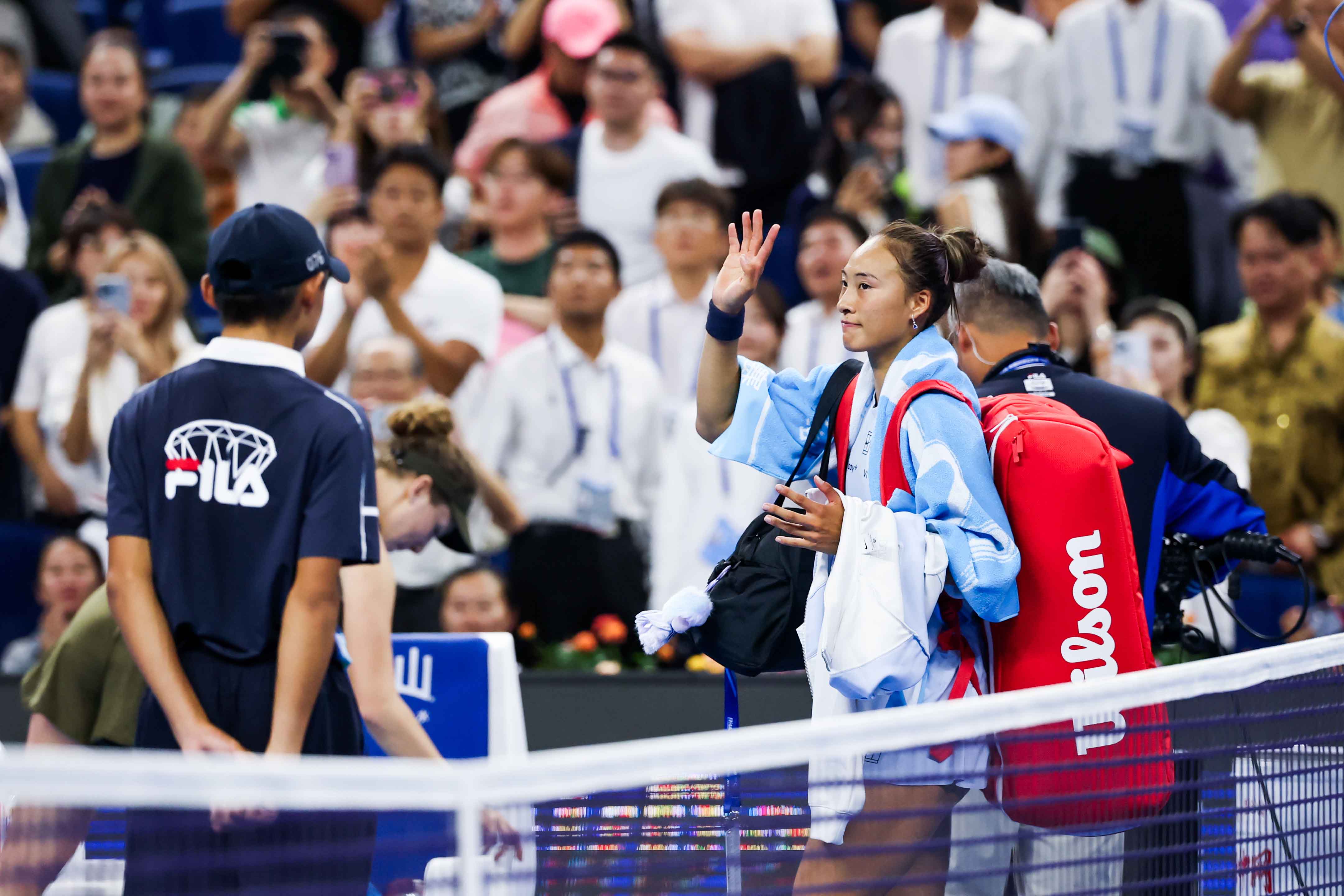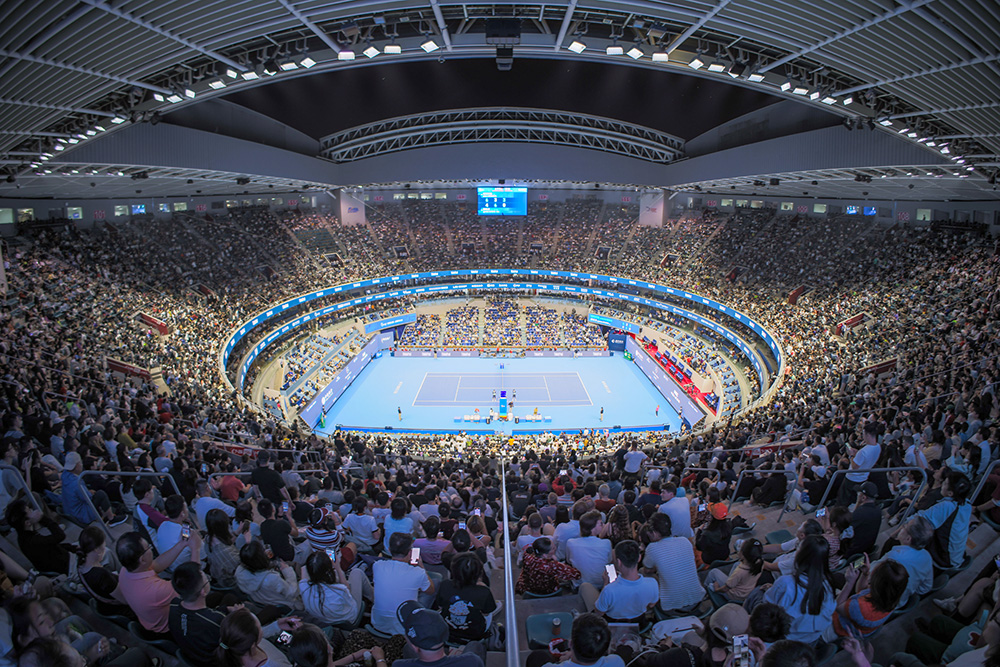



Her team and fans worried that the Queen was coming back to court too early, but No. 7 seed Qinwen Zheng decided to compete in the China Open anyway. It was a gutsy decision she does not regret, but a grueling three-set effort proved too much for the Chinese star on Monday night. Playing her second match since elbow surgery in July, Zheng retired in the third set to put No. 26 seed Linda Noskova into the Round of 16.
Zheng went into the China Open knowing she was not playing at her best. After her second-round win against Emiliana Arango on Saturday, Zheng said she was playing at 70 to 80 percent and using the tournament as an opportunity to assess her recovery and return to competition. Against Noskova, she found it difficult to make it through three sets without pain.
“I know already in the second set I couldn’t push more,” Zheng said in a post-match press conference. “Maybe I can play the first set, but to arrive at the third set is too much for my elbow. I believe with time it is going to be better.”
In her Olympic Gold-winning campaign at Paris 2024, Zheng was willing to break her body to win. With this being her first surgery, Zheng said she was not in a place in her mentality or recovery where she could push her body beyond its limits in the China Open. Fearful of injuring herself further, Zheng hesitated on aggressive plays and lost focus during points. Zheng had particular difficulty serving the ball without pain on Monday night.
“Repeated serves were adding pressure to some extent to my elbow. The pain only exists when I serve. Even with that, I was happy with the serve tonight,” Zheng said. “One thing that keeps coming to my head is should I keep pushing or should I stop. I think it's tough to really compete in a match when you have this doubt mentality because either you go full or nothing.”

Zheng’s return to the court ignited Chinese audiences, who packed out the 15,000-seat Diamond Court on Saturday night and filled it again on Monday. Fans travelled long distances to catch a glimpse of their ‘Queen Wen.’
“One of the reasons that I decided to play is because I know people love to watch me,” Zheng said. “That's why I made a rushed decision to play.”

The World No. 9 enjoys a particularly fervent following at home. Fans brought customized banners, posters, T-shirts and hand fans with Zheng’s name and face, greeting her entrance with a roar of applause and cheers unmatched for other players. Throughout the match, people stayed active on social media, sharing photos and videos to their friends and posting on their WeChat moments. Errors were met with groans of regret from the stands and applause for her to keep going. During pauses in play, chants of encouragement echoed through the court, and the atmosphere seemed to rise and fall with her every breath. At the start of a game point in the second set, a fan shouted “Break her!” drawing laughter from nearby spectators and briefly easing the tension.
Outside the court, fans across the country were watching her match on their phones and on their televisions. On Chinese social media, news of Zheng’s withdrawal prompted an outpouring of sympathy and support immediately, with many fans wishing her a full recovery and looking forward to her return.
During the match, Zheng showed she was still capable of competing at the top level. When her serves were accurate, they were clinical. She completed eight aces across 18 service games and won 79 percent of her first serve points. She won the second set in style, delivering powerful volleys and strong returns that set the crowd alight. Still, Zheng committed errors that signaled she was not fully fit. She committed five double-faults and could not get the ball over the net on numerous occasions.
Trailing 6-4, 3-6, 3-0 in the final set, Zheng called a medical timeout. A brief talk with a physiotherapist resulted in her retirement from the match. On her way out, fans rose again and applauded Zheng one last time. As for when she may play next, Zheng said she must analyze her MRI results and discuss playing with her team, but did not rule out the future.
“I think it's still quite positive to keep playing tennis because that's how you break the barrier,” she said. “Right now for me the priority is to recover and then let's see.”
—Reporting by Luca Giordano and Miaomiao Huang